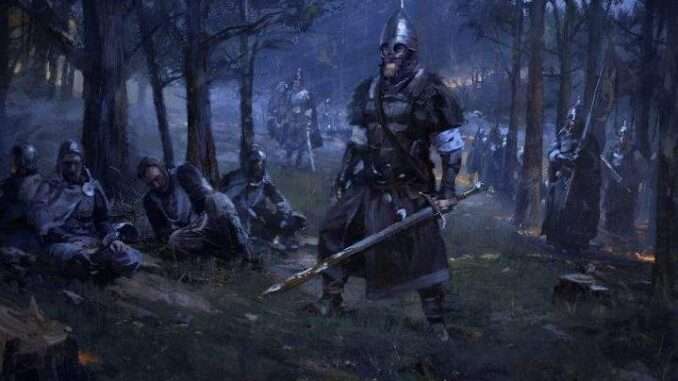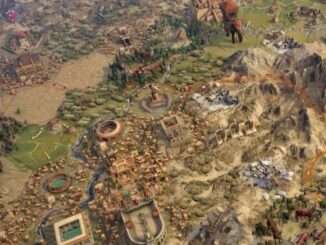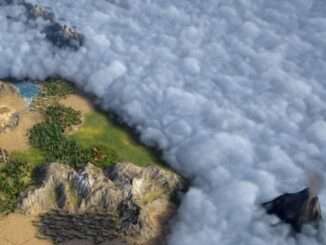
Assuming that this is not your first foray into 4x games, it will probably come as no surprise that settlers and founding new cities are the means by which your fledgling kingdom will grow in the early game.
How to Found New Cities
Basics
Unlike most other 4x games, however, you can’t just plonk a new city down anywhere. Citysites are finite in number. There are only so many available on any given map, and with the exception of a couple of “freebie” empty sites near your starting location, all of the city sites are occupied by someone else, either a barbarian tribe or a rival AI, so by and large, in order to gain access to sites that will allow you to grow, you’ll need to fight.
Fighting barbarian tribes is the means by which you gain access to new city sites. When you fight a rival AI Nation, you’re invariably fighting for control over existing cities.
A few things to note about founding a new city, however:
- You can found the city on any urban tile connected to the city center, but if another civ has “Claimed” the site and moved off, before you settle, you must claim it for yourself by moving a unit to the city center (removing their claim).
- It doesn’t matter whether you found on a freshwater tile or not. There’s no penalty for not founding on a freshwater tile, so experiment to see which tiles gets you the “best deal” in terms of resources captured by the initial city border, because once a given city claims a tile, that’s it. The tile belongs to that city.
- Terrain often plays an important role in deciding which of your vassal families to give a city to, but their current relations with you also plays a role, as giving a city to a vassal familythat’s currently upset with you can go a long way toward smoothing out that relationship, so…it’s a bit of a balancing act. On the other hand, some city sites just cry out for one family in particular. For example, if you find a site that has 3 game tiles and 2 fish tiles and you’re playing a Nation with the Hunters family, then the Hunters need that city and if it makes the other families angry, so be it. The Hunters can get so much more out of a site like that than any of the others that it would almost be criminal not to give it to them, regardless of other factors.
Here, it’s worth mentioning that before you found a city and give it to a particular family, you should review your relationship and standing with each family.
This is often a pivotal consideration, but it’s not necessarily the only one. Some cities just cry out for certain families, even if giving it to them might cause some unhappiness in some other family.
There are also strategic considerations. For example, the Champions get defensive bonuses in their cities, so you may want themin the locations most likely to be hot zones, even if that means temporarily alienating one of your other vassal families. You’ve got to take all of that into account before making a final decision about who gets a given city.
**Special note: Be aware that if a given family (say, the Sages) builds a settler, and that settler founds another Sages city, you’ll get +1 population when the city is founded!Also be aware that if you decide you don’t want a given city site, you can turn it into a minor city (worth money and 2VP’s) by expanding your borders such that all non-urban tiles adjacent to the city are inside your borders.
Improving the Productivity of Cities
The total output of any given city is the sum of the output of its improved tiles, plus the output ofhowever many specialists you have trained.
If you have a governor installed in the city in question, this will further modify your outputs, and sometimes, quite significantly.
To get more tile improvements, you need do nothing more than spend more worker turns improving tiles inside that city’s borders.
To get more specialists, you need lots of growth and as little discontent as you can manage (since each level of discontent hits you with a 5% penalty to growth).
More growth = more points of population that can be trained as specialists.
City Upkeep and Maintenance
Cities aren’t free. They carry certain costs with them. Those costs are as follows:
- Weak Cities consume 2 food per citizen (citizens = specialists + unemployed population).
- Developing Cities consume 3 food per citizen+ 1 Iron per citizen.
- Strong Cities consume 4 food +1 Iron +1 Stone per citizen.
- Legendary Cities consume 5 food +1 Iron +1 Stone +1 Wood per citizen.
Increasing the Number of Workable Tiles
Ultimately, the number of workable tiles a city has at its disposal is a function of its borders. As a city’s borders cast an increasingly wider net, you get more tiles to play with, and there are several things you can do to help speed that along. Here are the major ones:
- Urban tile improvements built on your border (examples include Shrine, Monastery, Hamlet)will extend your city’s borders.
- Rural Specialists on border tiles – Training a rural specialist on your border mayprovide you with additional tiles, if there are any unowned tiles immediately adjacent to the tile that the specialist is trained on.
- Events – sometimes, you’ll get an event which has an option to expand a city’s border tiles.
- Colonization – this law allows you to buy tiles not yet enclosed by any city’s borders. The tile acquisition cost starts out very low but can scale rather quickly.
- Landowners Family – Founding the “Seat” of the Landowners family allows you to buy tiles for that city from the turn of founding.
- The Border Boost Bonus Card – Available at Aristocracy, this card will grant five extra tiles to every city you have when you complete the research on the card.
Another thing to be aware of is the fact that your borders will expand to “join up” if you control the tiles all around it, so you won’t be left with tiny “holes” in your borders around your Kingdom.
Also, when your borders expand, the default is 1 tile adjacent but if the next tile beyond that is a special or an urban tile, then your borders will expand to encompass the special/urban tile as well, so the “right” border expansion can net you an impressive number of tiles indeed, and is almost a mini-game of its own.
The final thing to say on the topic of borders is this: Building an “intercoastal waterway” for your realm is one of the biggest and most powerful things you can do to help your game.
Roads are nice. No doubt about it, but roads only allow a nominal increase in movement. Moving along coastal waters inside your borders, however, is amazing. You get nine tiles of water movement for every point of movement a unit has. Stick to the coast, and provided you’ve got a robust coastal water network, you’ll be moving your units a staggering 27 tiles per turn.
It’s simply not possible to overstate how powerful that is. Buying tiles along the coast or building new buildings/training specialists that expand your borders on the coast is how you go about doing that and once you’ve taken the time to build it, you’llwonder how you ever got along without it. Seriously. It’s that strong.
Strategy Notes on Cities
Culture is an investment that takes time to pay off. The earlier you make that investment, the faster you start seeing returns.
Generally speaking, I like to put at least one triad of quarries in every city. That way, every city can train 3 stonecutters.
Stonecutters generate Civics. By training specialists that generate Civicsfirst, then building a forum, you can speed the progress of every other specialist that city produces for the rest of the game.
Note too that specialist costs scale, so they will take progressively longer to train as the game grinds on.
The more ways you canfind to bulk up a city’s Civics count, the more you can counteract this trend.





Be the first to comment